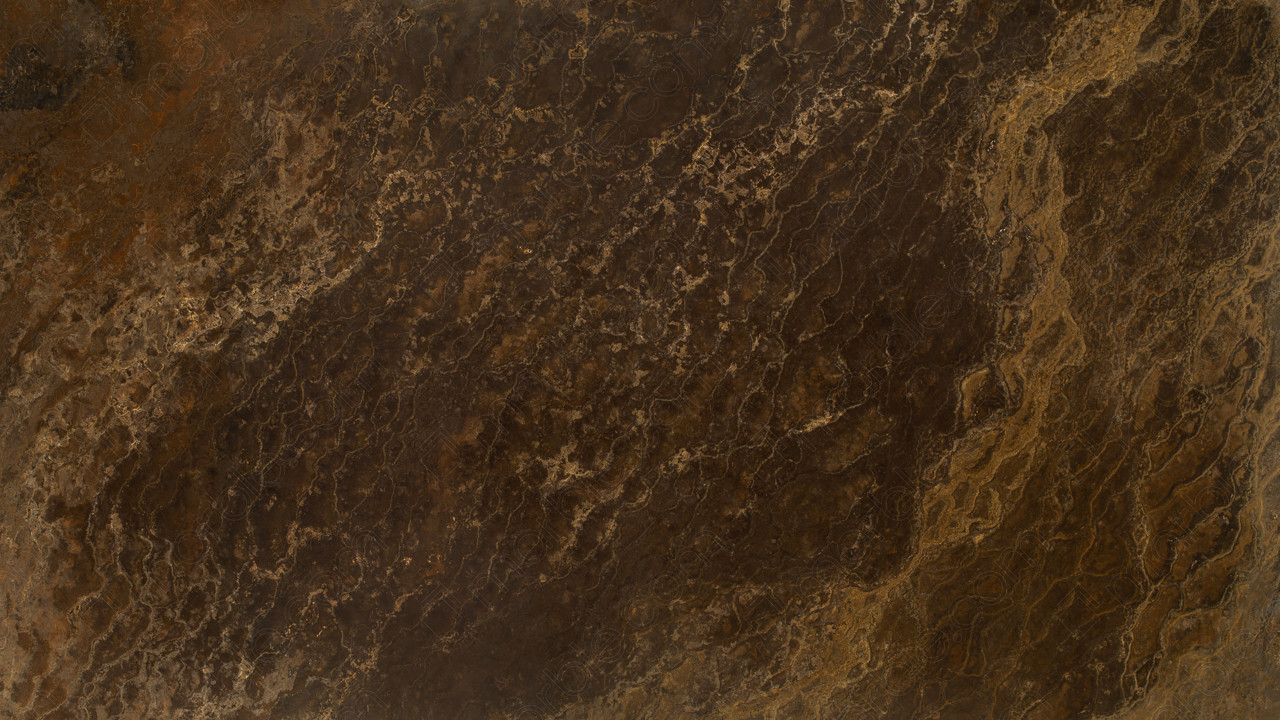
Crater Travertine
Crater Travertine is a brown stone with beige staining. Some of the beige parts of the stone appear as thinner, hair-like veining while other elements are thicker smudges, layering over one another creating varying degrees of opacity. The stone is extremely unique while still being easily adaptable in many situations.
As a brown, one of the truest neutral colors, it can go well with just about any paint color. The stone has an extremely slight warm undertone, which can be enhanced by matching with complementary shades. Travertine is a limestone that has been forged in intense temperatures. It is resistant to both heat and pressure, therefore ideal for interior spaces. Unlike other stone materials, travertine like Crater Travertine requires very little maintenance, however, it should still be cleaned with a natural stone cleaner. Using a different kind of cleaner could result in dull spots over long periods of time. Travertine can be used in a variety of areas, such as fireplace surrounds, bathroom or kitchen floors, and much more. This stone is beautiful, durable as well as remarkably affordable in comparison to other stones.
Material Type: Travertine
Country of origin: Peru
Colors: Beige, Brown
- 1. Can travertine be used as kitchen countertop material?
- Travertine is a relatively soft stone and should not be used as a viable kitchen countertop material.
- 2. Where can I use travertine in my home?
- Travertine should only be used in low traffic areas, including fireplace surroundings, bathtub surroundings, bathroom vanity tops and backsplashes.
- 3. Can travertine be used outdoors?
- Yes, travertine is commonly used in outdoor areas, such as pool decks, patios and walkways.
- 4. Can travertine be used for flooring?
- Yes, travertine can be used for both indoor and outdoor flooring.
- 5. Can you cut travertine tile?
- Yes, custom travertine tiles are often cut to order, based on customer specifications.
- 1. Do you provide free samples? How many samples can I take?
- At marble.com samples are free, and we encourage our clients to take up to ten samples per visit.
- 2. What materials can I find at your facilities?
- All Marble.com facilities carry slabs of granite, quartz, quartzite, marble, soapstone, slate, limestone, and travertine. Our Ridgefield Park yard has the largest selection, also offering slabs of gemstone, porcelain, and glass.
- 3. Why should I see a slab in person?
- Since every slab of natural stone is completely unique, we recommend visiting one of our facilities to see slab patterns and variations in person.
- 4. Where does your material come from?
- At marble.com we source our stone only from the most reputable quarries from around the globe, including those from Italy, Spain, Brazil, and India.
- 5. Why is some stone more expensive than others?
- Stone slabs that are extremely rare and boast unique colors tend to be more expensive than commonly found stone.
- 6. Do I have to seal natural stone?
- We do recommend sealing natural stone countertops periodically, the frequency of sealing the stone depends on the material.
- 7. What is a honed finish?
- A honed stone finish refers to the smooth, matte surface of the material, which creates a visibly lighter and softer tone. While honed finish might be an ideal design choice for some homeowners, it also makes the stone more susceptible to staining and etching.
- 8. Can a chip on my countertop be repaired?
- Most chips, smaller than a dime in diameter, can be repaired by the homeowner using a chip repair kit. We do recommend professional service care for larger chips.
- 9. Can I install my own countertops?
- We recommend professional installation, completed by our trained technicians for all major projects, however some smaller pieces may be installed by the customers.




 Facebook
Facebook
 Twitter
Twitter
 E-mail
E-mail
 LinkedIn
LinkedIn
 Pinterest
Pinterest






